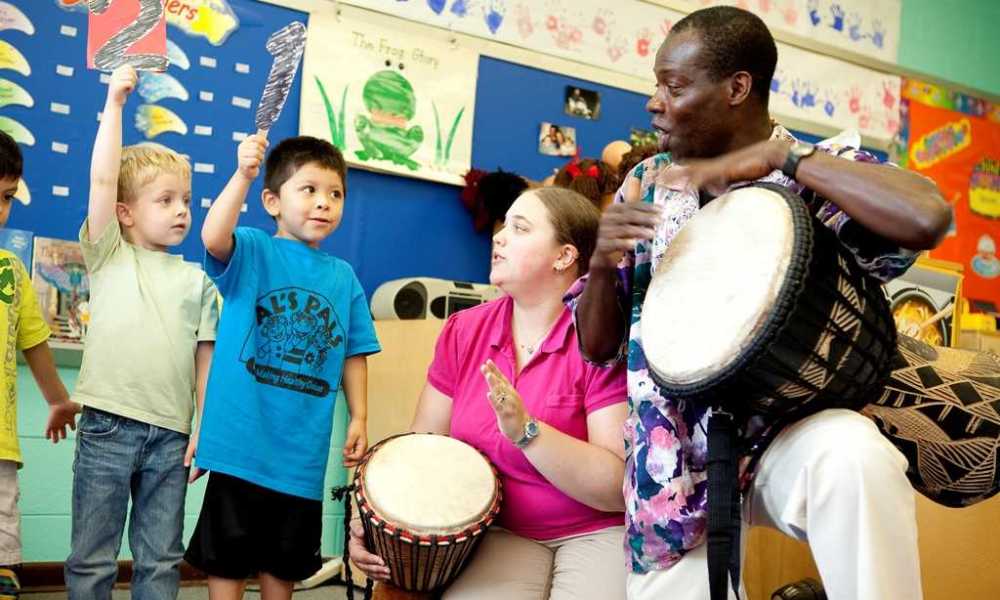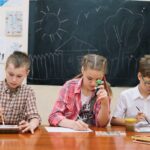Education is more than just academics; it’s about shaping well-rounded individuals who are prepared for the challenges of the future. Integrating arts and music into school curriculums provides students with an opportunity to explore creativity, develop essential skills, and cultivate an appreciation for culture. Arts and music education enriches students’ lives while fostering critical thinking, emotional intelligence, and collaboration—skills that last a lifetime.
The Importance of Arts & Music Education
Arts and music education offers far-reaching benefits that extend beyond the classroom. It engages students in creative and critical thinking, helping them see the world from multiple perspectives. From painting and theatre to singing and playing musical instruments, these activities offer students opportunities to express themselves, build confidence, and develop a sense of accomplishment.
- Unlocking Creativity: Arts programs encourage students to think outside the box, developing innovative problem-solving skills that are invaluable in all walks of life.
- Encouraging Collaboration: Group projects like theatre productions or choir performances teach teamwork and effective communication, preparing students for future workplace environments.
- Promoting Emotional Expression: Art and music allow students to process and express emotions in a constructive way, supporting their mental and emotional well-being.
By integrating arts and music into their education, students gain tools for both personal growth and academic success.
How Arts Education Builds Lifelong Skills
Arts education plays a key role in developing skills that students carry into adulthood. Through various artistic disciplines, students learn to approach challenges with creativity and resilience.
- Critical Thinking & Problem-Solving: Engaging in the arts requires students to think critically and make decisions, whether it’s mixing colors for a painting or perfecting a music piece.
- Enhanced Communication: Theatre and music help students develop verbal and non-verbal communication skills, essential for interpersonal relationships and professional interactions.
- Time Management & Discipline: Mastering an instrument or completing a detailed art project teaches students the value of practice, patience, and perseverance.
- Cultural Awareness: Exposure to different art forms fosters an understanding of diverse perspectives and traditions, helping students become empathetic global citizens.
These transferable skills not only benefit students during their school years but also set the foundation for lifelong success.
The Benefits of Music Education
Music has the unique ability to engage both the mind and body, offering numerous cognitive, emotional, and social benefits.
- Boosting Cognitive Development: Learning an instrument or reading music improves memory, attention, and coordination, all of which enhance academic performance.
- Building Emotional Intelligence: Music allows students to connect with their feelings and understand the emotions of others, fostering empathy and self-awareness.
- Enhancing Focus: Regular practice and concentration on musical details teach students to focus their energy, a skill that translates to other areas of life.
- Encouraging Teamwork: Playing in a band or singing in a choir teaches students how to work harmoniously in a group setting, relying on one another to create something greater than the sum of its parts.
Music education nurtures not only talent but also essential life skills that promote well-being and academic achievement.
Who Benefits Most from Arts & Music Education?
Arts and music education is valuable for students of all ages, interests, and abilities. However, certain groups may find it particularly beneficial:
- Creative Thinkers: Students who enjoy expressing themselves creatively through visual arts, music, or performance.
- Future Innovators: Those who want to develop problem-solving and critical-thinking skills for various career paths.
- Collaborative Learners: Students who thrive in group settings and enjoy working on team-based projects like theatre productions or ensemble performances.
- Emotionally Expressive Individuals: Those who need an outlet to process and express emotions in a safe, constructive environment.
Arts and music programs are inclusive and adaptable, making them ideal for students with diverse needs and talents.
The Long-Term Impact of Arts & Music in Schools
The skills and experiences gained through arts and music education extend far beyond childhood. Students who engage in these programs often exhibit greater self-confidence, cultural awareness, and adaptability as adults. Furthermore, arts education fosters a lifelong appreciation for creativity, encouraging individuals to seek out enriching cultural experiences throughout their lives.
In addition to personal growth, arts and music programs contribute to academic success. Studies show that students involved in the arts perform better in core subjects, score higher on standardized tests, and are more likely to pursue higher education.
Why Support Arts & Music Programs?
Supporting arts and music education is an investment in a brighter future. By incorporating these programs into schools, educators can nurture creativity, foster collaboration, and equip students with the tools they need to succeed in life. Furthermore, these programs promote inclusivity and diversity, offering all students a chance to shine and discover their unique talents.
Unlock Your Child’s Potential Through the Arts
Arts and music education opens the door to endless possibilities, providing students with the skills, confidence, and creativity they need to excel in life. By supporting comprehensive arts and music programs, you’re helping to shape a generation of innovative, empathetic, and well-rounded individuals.
Are you ready to inspire your child’s creativity and foster lifelong skills? Contact us today to learn more about arts and music programs that can transform your child’s education. Schedule a consultation or visit to explore how these programs can unlock your child’s full potential!





